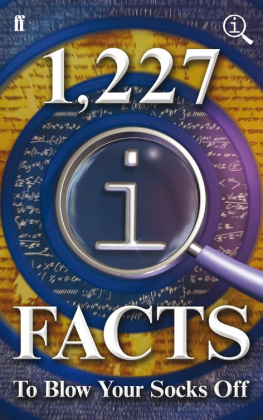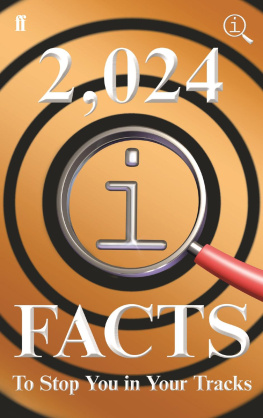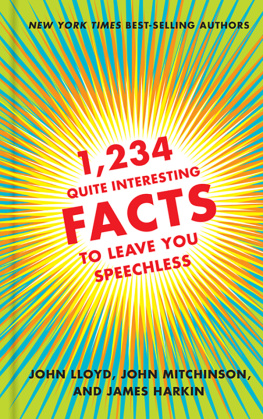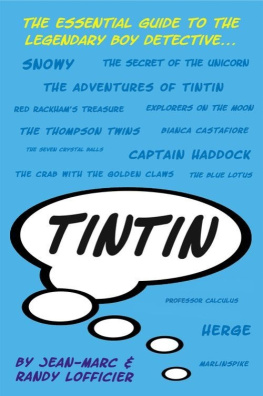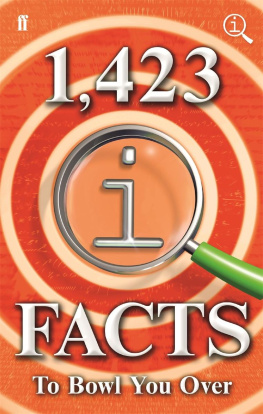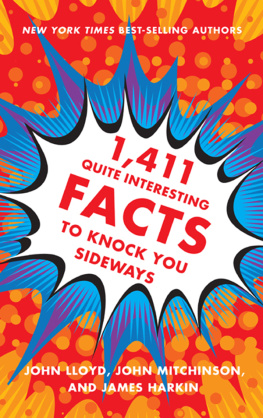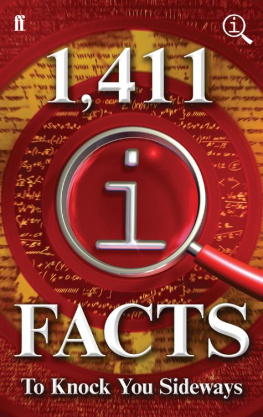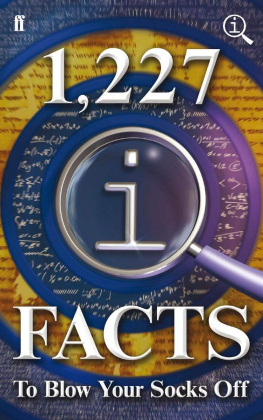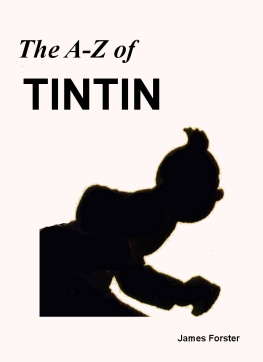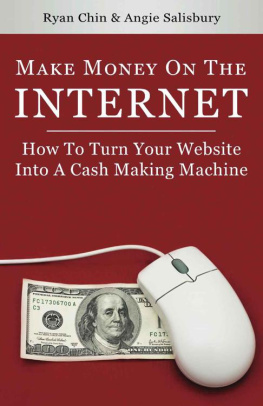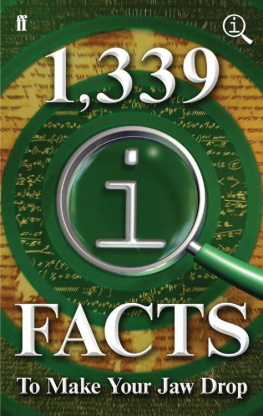I am no poet but, if you think for yourselves as I proceed, the facts will form a poem in your mind. MICHAEL FARADAY (17911867)
Michael Faraday was one of the greatest scientists in history and the greatest experimentalist of them all. The son of a village blacksmith from a desolate part of Cumbria, he left school at 14 with only the most rudimentary education, and taught himself everything he knew by reading the books that passed through his hands during his seven-year apprenticeship to a London bookbinder. At QI, we think a great deal of Michael Faraday, and were not the only ones. Albert Einstein kept a picture of him on his study wall, alongside Isaac Newton and James Clerk Maxwell. Like Faraday, we read a lot of books on any and every conceivable subject, and the more madly random the better. None of us claim to have an ounce of Faradays genius, but all three of us, despite the fact that we each went to university (43, 31 and 16 years ago respectively), count ourselves as essentially self-educated.
We have achieved this together over the last ten years by applying the QI Research Method, which can be expressed in a single line. It is to read all of anything (even the footnotes) but only write down what you, personally, find interesting. This not only reduces, by several orders of magnitude, the essentially infinite amount of available information in the universe, but it also has the delightful side effect that we really do learn something new every day. For instance, until 20 minutes ago, when we started writing this introduction, none of us knew that Michael Faraday (as in so many other ways) was more than 150 years ahead of us. For he did exactly the same thing as we now do: he read every book he came across, but only noted down what he found singular or clever. Core QI research always begins like this, in nuggets.
Each bit is then added to our database, expressed in the clearest and sparest form that we can manage. This simple way of distilling knowledge leaves behind a rich residue of astonishment and delight, a small selection of which is before you. Much of what we find lays bare, surprisingly often, what is not known, rather than what is known. Such information (or lack of it) can be returned to again and again without ever becoming dull. It bears thinking about, often. When Newton was asked how he had discovered the universal law of gravitation, he replied, By thinking on it continually.
Or, as another of our heroes, Ivan Petrovich Pavlov, put it: Do not become a mere recorder of facts, but try to penetrate the mystery of their origin. So here, in bite-sized pieces, nestling among the known and the numbered, are the mysteries of the enormous and the minuscule; of human comedy and tragedy; of heat, light, speed, life, art and thought. As Faraday urged his students, we also try to think for ourselves. But more uncannily than that, coaxing these 1,227 items into an order that felt comfortable and right has had the strange result that they have indeed come to form a kind of poem in the mind. We hope you enjoy reading them as much as we have enjoyed putting them together. And, if you solve any of the mysteries, let us know.
JOHN LLOYD, JOHN MITCHINSON & JAMES HARKIN Everyone is entitled to their own opinions,
but they are not entitled
to their own facts. DANIEL PATRICK MOYNIHAN (19272003)

Asteroid 1,227 is called Geranium. The ozone layer smells faintly of geraniums. The centre of the galaxy tastes like raspberries. The universe is shaped like a vuvuzela.
Light travels 18 million times faster than rain. The Queen is the legal owner of one-sixth of the Earths land surface.
The name of the first human being in Norse mythology is Ask. Everybody expected the Spanish Inquisition they were legally obliged to give 30 days notice.
Octopuses have three hearts. Kangaroos have three vaginas. Three of Fidel Castros sons, Alexis, Alexander and Alejandro, are named after Alexander the Great. The opening lines of Jerome K.
Jeromes Three Men In A Boat are: There were four of us.
40% of the human race did not survive beyond its 1st birthday. One in ten European babies is conceived in an IKEA bed. The human heart pumps enough blood in a lifetime to fill three supertankers. The word time is the most commonly used noun in English.
10% of all the photographs in the world were taken in the last 12 months.
Between 1838 and 1960, more than half the photos taken were of babies. The words written on Twitter every day would fill a 10-million-page book. In 2008, a man in Ohio was arrested for having sex with a picnic table.
The average person walks the equivalent of three times around the world in a lifetime. The worlds population spends 500,000 hours a day typing Internet security codes. The first book ever printed in Oxford had a misprint on the first page: they got the date wrong.
For 100 years, the flag of the tropical Turks and Caicos Islands in the West Indies mistakenly featured an igloo.
One third of Russians believe that the Sun revolves around the Earth. 46% of American adults believe that the world is less than 10,000 years old. 46% of American adults cant read well enough to understand the label on their prescription medicine. More than 50% of NASA employees are dyslexic, hired for their superior problem-solving and spatial-awareness skills.
Beyonc Knowles is an 8th cousin, four times removed, of Gustav Mahler.
Shostakovich wrote his 8th Symphony in a henhouse. Argentina is the 8th-largest country with the 8th-largest Jewish population. 8th January 1835 is the only day in history that the USA had no national debt.
Italys biggest business is the Mafia. It turns over $178 billion a year and accounts for 7% of GDP. George W.
Bush and Saddam Hussein had their shoes hand-made by the same Italian cobbler. The designer of Saddams bunker was the grandson of the woman who built Hitlers bunker. Churchills secret bunker was in Neasden. It was so horrible he only went there once.

